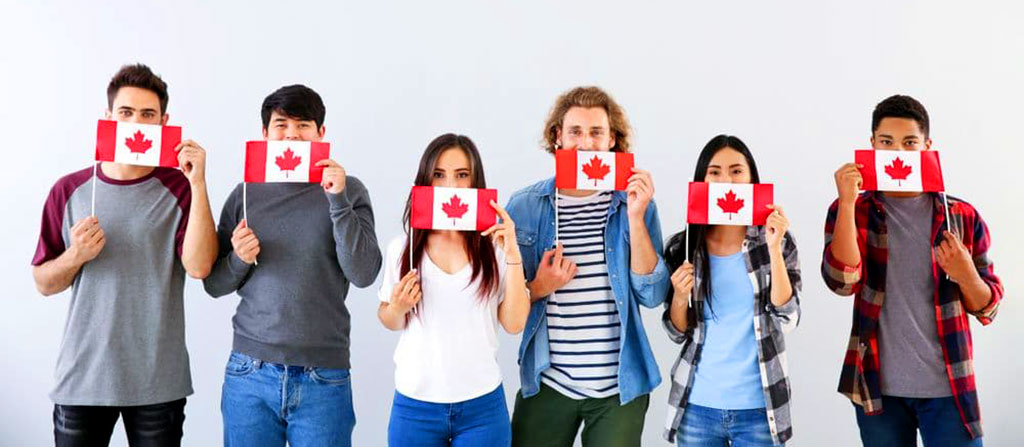 The Federal election circus has come and gone, with the Liberals winning a minority government. They lost major areas in Quebec and got swept out in Saskatchewan and Alberta. But what will happen with immigration now that they only have a minority government? Let’s go back to the promises made by different party leaders during the election campaign.
The Federal election circus has come and gone, with the Liberals winning a minority government. They lost major areas in Quebec and got swept out in Saskatchewan and Alberta. But what will happen with immigration now that they only have a minority government? Let’s go back to the promises made by different party leaders during the election campaign.
When The Green Party leader Elizabeth May unveiled her Party’s platform, it may have been one of the most progressive and promising with regard to immigration. She spoke about revising the definition of refugees to include “environmental refugees”. Her Party also promised to allocate funding for ESL programs and process family reunification faster. She talked about the elimination of the TFW Program and the Safe Country Agreement with the US. Bloc Québecois leader Yves-Francois Blanchet surprisingly made immigration promises to address issues on immigration including eliminations of long delays in processing the TFW applicants by hiring more immigration staff. He promised to give incentives for new immigrants and graduates to stay in the Quebec by giving the tax credits. Like the Greens, The BQ also promised to suspend the Safe Third Country Agreement with the United States.
The Progressive Conservative (PC) Party however, made less commitments to immigration and seemed to be focused on restricting entries of both economic immigrants and refugees. The PC promised to improve language training, hiring more border guards and judges in Cities close to where “illegal border crossers” pass. Their leader Andrew Scheer does not seem to see the problem with the Safe Country Agreement with the US. However, he said that he would “close the loophole”. The NDP leader, Jagmeet Singh, had also promised to suspend the Safe Third Country Agreement with the US along the promise to remove the cap for sponsoring parents and grandparents. In Quebec where the NDP lost seats, he cautiously promised to provide resources to expand the French language program.
So, what did the Liberals promise this time around? Justin Trudeau promised to extend a refugee stream to human rights advocates, journalists and humanitarian workers whose lives are being threatened. He also promised to remove the Citizenship fee that is currently $630. The creation of the Municipal Nominee Program is something interesting. Promised by the Liberal Party, it is a new immigration stream that will hopefully add 5,000 applicants per City per year. Mr. Trudeau also talked about making the Atlantic Immigration Pilot Project a permanent stream of immigration. Those are very ambitious promises while there are still huge gaps in the Temporary Foreign Worker Program.
What was clear though was that the couple of very important policies that was implemented by the Liberals this year prior to the election will stay. These include the “Open Work for Vulnerable Sector” and the two new caregiver pilot programs, The Home Childcare Provider Pilot and the Home Support Worker Pilot.
The “Open Work for Vulnerable Sector” would allow migrant workers in Canada on employer-specific work permits who are experiencing abuse, or who are at risk of abuse, in the context of their employment in Canada become eligible to receive an open work permit that is exempt from the LMIA. The definition of abuse in these cases are also broad. If the workers experienced physical abuse, sexual abuse, psychological abuse and financial abuse, they may be able to apply.
While the “new” caregiver program might not sound new, there are key changes for the caregiver program. They are:
1. Occupation-specific work permits instead of employer-specific work permits. This change will allow caregivers to change employers;
2. Caregiver’s immediate family will also be entitled to open work permits and/or study permits. Essentially successful caregiver applicants can bring their family with them; and
3. Employers will no longer need a Labour Market Impact Assessment (LMIA) before hiring a caregiver from overseas.
The changes look positive and promising. However, the challenges of applicants are still the language assessment: Canadian Language Benchmark (CLB) of 5 in English and the recruitment cap of 5500 per year. This will continue to generate backlog because of the volume of applicants.
This new minority government will allow more debates and the possibility of some parties working with the Liberals to make the refugee and immigration program more humane and pro people. We will be watching the next four years.


